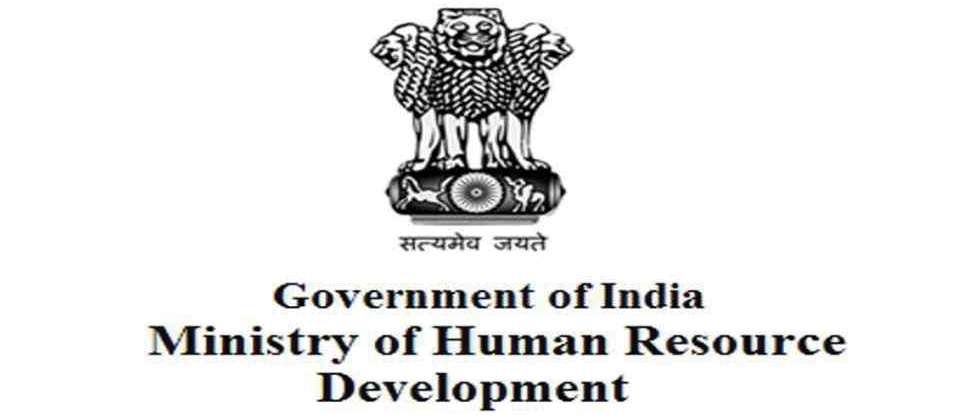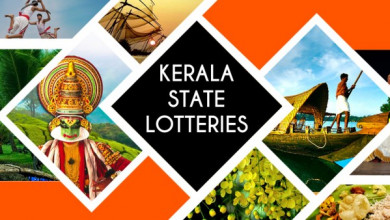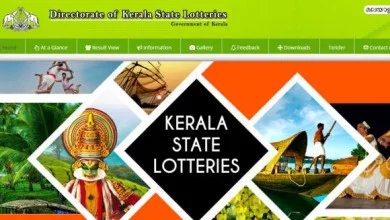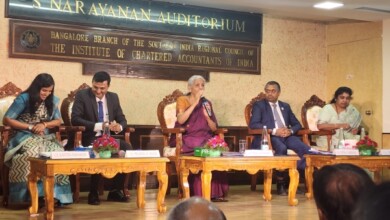PM addresses ‘School Education in 21st Century’ Conclave under New Education Policy- 2020

Prime Minister Shri Narendra Modi addressed the Conclave on ‘School Education in 21st Century’ under National Education Policy’ here today through video conference. A two-day Conclave on “School Education in 21st Century” organised by Ministry of Education as part of Shikshak Parv 2020 virtually commenced on 10th September, 2020. The two-day conclave has been organised by the Ministry of Education as part of Shikshak Parv.Union Minister for Education Shri Ramesh Pokhriyal; Union Minister of State for Education, Shri Sanjay Dhotre; Secretary, Department of Higher Education, Shri Amit Khare, Secretary, Department of School Education and Literacy Smt Anita Karwal also participated in the event. Dr. Kasturirangan, Chairman, Drafting committee of NEP; Prof. M.K Shridhar, Member, Drafting committee of NEP; Prof Manjul Bhargava, Member, Drafting committee of NEP and Dr Shakila Shamsu, Member, Drafting committee of NEP were also present on the occasion.
Speaking on the occasion Prime Minister said that National Education Policy is going to give a new direction to 21st century India and we are becoming part of a moment that is laying the foundation for building the future of our country. He said that hardly any aspect of our life remained the same in last three decades yet our education system is still running under the old system. The new National Education Policy is a means to fulfil new aspirations, new opportunities of a New India, he said.
The Prime Minister said that the NEP 2020 is a result of hard work of people from every region, every sector and every language in the last 3 to 4 years. He said the actual work begins now, with the implementation of the policy. He urged the teachers to work together for an effective implementation of the National Education Policy.
The Prime Minister said it is legitimate that many questions arise after the announcement of the Policy and that it is necessary to discuss such issues in this conclave to move forward.
The Prime Minister expressed happiness that principals and teachers are enthusiastically participating in this discussion to implement the National Education Policy. He said that over 1.5 million suggestions have been received within a week from teachers across the country on implementing the National Education Policy.
The Prime Minister said that energetic youth are the engines of development of a country but that their development should begin from their childhood. He said that the education of children, the right environment they get, to a large extent determines what the person would become in his future and what his personality would be. He said the NEP-2020 lays a lot of emphasis on this.
The Prime Minister said that it is in preschool where children begin to understand their senses, their skills better. For this, there is a need for schools and teachers to provide an environment of fun learning, playful learning, activity based learning and discovery based learning to children. He said that as the child progresses, it is very necessary to develop a greater learning spirit, scientific and logical thinking, mathematical thinking and scientific temperament.
In the National Education Policy, The Prime Minister stressed the importance of replacing the old 10 Plus 2 with the system of 5 Plus 3 Plus 3 Plus 4. He said now playful education of the pre-school which is limited to private schools in cities will also reach villages once this policy is implemented.
He emphasized that focus on foundational education is the most important aspect of this policy. Under the National Education Policy, the development of foundational literacy and numeracy will be taken as a national mission. The child should go ahead and read to learn, for that it is necessary that in the beginning he should learn to read. This development journey from learn to read to read to learn will be completed through foundational literacy and numeracy.
The Prime Minister laid down a goal for the children of the nation in Oral Reading Fluency. He said that it must be ensured that every child who crosses the third grade can easily read 30 to 35 words in a minute with comprehension. He added that this will help him in understanding the content of other subjects with ease. He further said that all this will happen only when the studies are connected to the real world, to our lives and to the surrounding environment.
He added that when education is linked to the surrounding environment, it has an impact on the whole life of the student and also on the whole society. He also mentioned about the initiative when he was the Chief Minister of Gujarat. Students from all schools were given the task to identify the oldest tree in the village, and then, write an essay based on that tree and their village. He said that this experiment was very successful, on one hand the children got information about the environment, as well as they got a chance to get a lot of information about their village.
The Prime Minister stressed on the need to increase such easy and innovative methods. These experiments should be the core of our new age learning – Engage, Explore, Experience, Express and Excel.
Shri Narendra Modi said the students engage in activities, events, projects according to their interest. Then children learn to express in a constructive way. He said that children should be taken on study tours to historical places, places of interests, to farms, industries etc, as it would give them practical knowledge. The Prime Minister said this is now not happening in all the schools. He said because of this, many students are not getting practical knowledge. He said that by exposing the students to practical knowledge their curiosity would increase and also their knowledge. If students see the skilled professionals then there will be a kind of emotional connection, they will understand the skills and respect them. It is possible that many of these children grow up to join such industries or even if they choose another profession it will remain in their mind of what can be innovated to improve such profession.
The Prime Minister said that the National Education Policy has been formulated in such a way that syllabus can be reduced and focused on fundamental things. A National Curriculum Framework will be developed to make learning integrated and interdisciplinary, fun based and complete experience. Suggestions will be taken for this and recommendations and modern education systems of all will be included in it. The world of the future is going to be quite different from our world today.
He stressed on the importance of advancing our students with 21st century skills. He listed out the 21st century skills – Critical Thinking, Creativity, Collaboration, Curiosity and Communication. He said that students should learn coding from the beginning, understand Artificial Intelligence, join Internet of Things, Cloud Computing, Data Science and Robotics. He said that our earlier education policy was restrictive. But in the real world, all subjects are related to each other. But the present system did not provide an opportunity to change the field, to connect with new possibilities. This has also been a major reason for the dropout of many children. Therefore, the National Education Policy students are given freedom to choose any subject.
The Prime Minister said that National education policy also addresses another big issue – marksheet driven education dominating in place of learning driven education in our country. He said that the marksheet has now become like a mental pressure sheet. Removing this stress from education is one of the main objectives of the National Education Policy. The examination should be such that it does not put unnecessary pressure on the students. And the effort is that students should not be evaluated by just one examination, but based on various aspects of student development like self-assessment, peer-to-peer assessment. Prime Minister said instead of a marksheet the National Education Policy, has proposed for a holistic report card which will be a detailed sheet of unique potential, aptitude, attitude, talent, skills, efficiency, competency and possibilities of the students. He added that a new National Assessment Center “Parakh” will also be established for the overall improvement of the evaluation system.
The Prime Minister said that one needs to understand that language is the medium of education, language is not all of education. Some people forget this difference. Therefore, whatever language a child can learn easily, the same language should be the language of learning. He said that keeping this in mind, it is proposed that early education should be in the mother tongue like in most other countries. Otherwise when children hear something in another language, they first translate it in their own language, then understand it. This creates great confusion in the child’s mind, it is very stressful. Therefore, as far as possible, keeping the local language, mother tongue, medium of education up to grade five, grade five at least, is stated in the National Education Policy.
The Prime Minister said that in the National Education Policy, there are some restrictions on learning and teaching a language other than mother tongue. Though foreign languages are helpful on the international stage along with English, children will be able to read and learn. He added that at the same time all Indian languages should also be promoted so that our youth can get acquainted with the language of different states and culture there.
The Prime Minister said that teachers are the pioneers of this journey of National Education Policy. Therefore, all the teachers also have to learn a lot of new things and unlearn old things too. When 75 years of independence are completed in 2022, Prime Minister said that it is our collective responsibility to ensure that every student of India should read as per the National Education Policy. He called upon the cooperation of all the teachers, administrators, voluntary organizations and parents in this national mission.
Text of PM’s address at Conclave on “School Education in 21st Century” under NEP 2020
Speaking on the occasion Union Minister expressed his gratitude to the Prime Minister Shri Narendra Modi for guiding the nation and the ministry through continuous dialogue and discussion from the formulation to implementation of the National Education Policy. He said that the National Education Policy (NEP) is the first education policy of the 21st century, which aims to meet many growing developmental needs of our country. This policy is in line with the Sustainable Development Agenda-2030 set by the United Nations. The National Education Policy 2020 is built on the fundamental pillars of access, equity, quality, affordability and accountability.
The Minister said that we are moving in the direction of removing the temporary character of education and making it contemporary. While we will be standing on the Indian Foundation, our outlook will be international. The balance between the two has been taken special care in the New Education Policy. Shri Pokhriyal gave brief description of the discussions held during the first day of the Conclave. He highlighted about various discussions held on Foundational Literacy and Numeracy, Art Integrated and Toy Integrated Pedagogy, Early Child Care and Education, Holistic Progress Card, Teaching in Mother Tongue, No Hard Separation, etc.
Shri Pokhriyal highlighted that to achieve the NEP 2020 goals and objectives, the Ministry has prepared a detailed implementation plan linking each of the recommendations of the NEP with responsible agencies in a mission mode and time frame. The main focus of this implementation plan is to define the activities in such a way that a cohesive implementation is prepared and joint implementation by the Center and the States. This agenda / implementation plan takes into account the fundamentals of policy sense and collaborative federalism and it is proposed to be implemented in a phased manner.
The Minister called upon all the states to take suggestions from all stakeholders – parents, teachers, schools, students, academics etc., discuss and initiate awareness campaigns and training programs to take the National Education Policy to the grassroots level. National education policy can be implemented successfully only with the help of aware citizens, conscious parents, teachers and students. Every student, every teacher, every institution, every state government are the brand ambassadors of this policy. Ultimately, it is the education policy of the nation, after the discussion and thinking of the entire nation, incorporating the aspirations of the entire nation. I am confident that with the support of all of you, we will definitely succeed.
Click here to see the full speech of Union Education Minister
While addressing on the occasion Shri Dhotre expressed his gratitude to the Prime Minister Shri Narendra Modi for sharing his vision on holistic development of education sector. He said that the New Education Policy is an important step to enhance the quality of education, promote innovation and research. A massive change in education is envisaged through the National Education Policy 2020.
He further said that Children will now be the center of our education system. The entire pedagogy for quality education will be based on Child Specific Pedagogy. The school curriculum for children up to the age of 3-8 years will be restructured keeping the basic literacy and mathematical ability at the center. He said we have to invest in pre-primary level to make children a good, ethical, thoughtful and an empathetic human being. Shri Dhotre added that the Ministry of Education is committed to implement the National Education Policy successfully in the near future.
Shikshak Parv is being celebrated from 8th September- 25th September, 2020 to felicitate the Teachers and to take New Education Policy 2020 forward. Various Webinars, Virtual Conferences, and Conclaves on various aspects of National Education Policy 2020 are being organised across the country.
Around 2 lakh registered persons on MyGov Portal, Principals and Teachers from 23,000 schools of CBSE including 1240 schools of KVS and 660 schools of JNV, Regional offices/Centres of Excellence/training institutes across the country: 16 of CBSE, 30 of KVS and 16 of JNV, all SCERTs and DIETs, all School education departments of all states/UTs, Teachers from various Schools in states/UTs, Teacher Educational Institutions also joined joined through live webcast /social media and Mygov portal.




